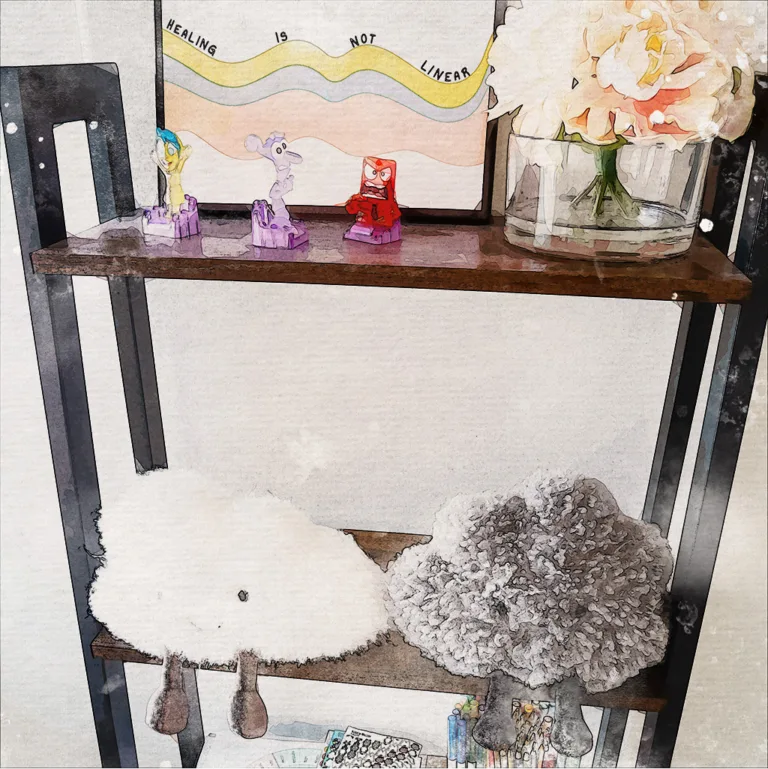Understanding Play-Based Therapy for Children
Children often lack the vocabulary and emotional awareness to express their feelings and experiences through words alone. Play is the natural language of childhood – it’s how children explore their world, process emotions, and make sense of their experiences. At Renewed Stories Counseling, we use play-based therapy approaches to connect with children in a way that feels natural and comfortable for them.
Play therapy creates a safe space where children can express themselves without the pressure of finding the right words. Through carefully selected toys, art materials, and activities, children communicate their inner thoughts, fears, and wishes. As trained therapists, we observe and participate in this play, helping children work through challenges and develop healthier ways of coping.
How We Use Play Therapy at Renewed Stories
When a child comes to Renewed Stories Counsling we utilize carefully selected therapeutic toys and materials. Our play therapy areas include:
- Art supplies for creative expression
- Sand trays and miniature figures for storytelling
- Puppets for role-playing and communication
- Games that build skills and explore feelings
- Sensory materials for emotional regulation
We believe that the therapeutic relationship is at the heart of healing. Our child therapists build trusting connections with each child, creating a space where they feel safe to express themselves authentically. We follow the child’s lead while gently guiding the process toward therapeutic goals.
The beauty of play therapy lies in its adaptability. We tailor our approach to each child’s unique needs, developmental stage, and specific challenges. For a child dealing with anxiety, play might involve creating worry monsters and developing strategies to tame them. For a child processing grief, we might use art and storytelling to honor memories and express difficult emotions.
When Play Therapy Can Help
Play-based approaches can benefit children facing many different challenges:
- Emotional struggles: Anxiety, depression, anger, and fear
- Life transitions: Divorce, moves, new siblings, or school changes
- Traumatic experiences: Accidents, losses, medical procedures, or abuse
- Behavioral challenges: Aggression, withdrawal, or difficulty following rules
- Social difficulties: Making friends, handling conflicts, or understanding social cues
- Self-regulation: Managing big emotions and impulses
Even very young children can benefit from play therapy. Preschoolers who can’t fully articulate their feelings can show us through play. Older children and pre-teens often engage in more structured therapeutic activities while still benefiting from creative expression. We adjust our methods to match each child’s developmental needs and personal preferences.
The Parent Partnership
We view parents as essential partners in the healing process. To ensure the best possible outcomes for your child:
Initial Parent Intake: Unless there is a court order prohibiting it, we require an initial intake session with both parents together without the child present. If this isn’t possible, we may arrange separate intake sessions with each parent. This helps us understand your child’s needs from all perspectives.
Equal Information Access: Both parents will have equal access to understanding the therapy process and their child’s progress. We are committed to transparent communication with all legal guardians while maintaining appropriate confidentiality.
Child’s Therapeutic Space: While parent involvement is crucial, the therapeutic space primarily belongs to your child. Maintaining the integrity of this space and helping your child develop and establish their own goals remains our top priority.
Parenting Plans: For divorced or separated parents, we require a copy of the current parenting plan prior to starting services. It is the parents’ responsibility to ensure they are acting in accordance with this plan throughout the therapy process.
Throughout therapy, we regularly connect with parents to:
- Share insights from therapy sessions
- Provide strategies to support your child at home
- Understand how your child is progressing in different environments
- Address any new concerns as they arise
Sometimes we might invite you into sessions to participate in therapeutic play with your child. These family play therapy moments can strengthen your connection and give you new ways to communicate with your child at home.
The Healing Journey
Children often show progress in play therapy through both their play themes and their behavior outside the therapy room. A child who initially created chaotic, threatening scenes in the sand tray might gradually create more organized, peaceful worlds. Parents might notice improved sleep, better emotional regulation, or more confidence in social situations.
The length of therapy varies based on each child’s needs. Some children show significant improvement after 8-12 sessions, while others benefit from longer-term support. We regularly assess progress and collaborate with you to determine the right therapeutic path for your child.







